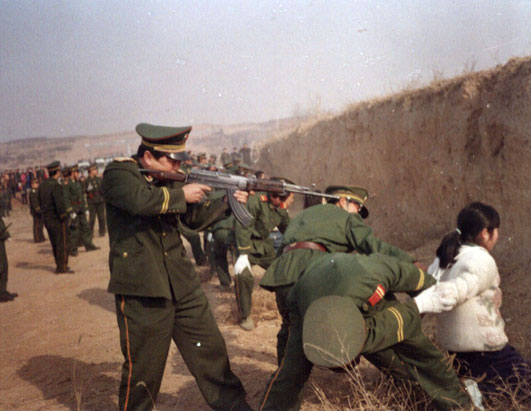Jane Tang, Gigi Lee and Matt Chan | Radio Free Asia
The report comes as Beijing steps up overseas influence campaigns in a bid to sell the ruling party’s version of the ‘international order.’
As the ruling Chinese Communist Party (CCP) marks its centenary amid a wave of state propaganda aimed at audiences at home and overseas, international public opinion of Beijing remains low, a new research report has found.
A Pew Research Center poll of 18,850 people across 17 developed economies earlier this year found that views of China “remain largely negative.”
“Large majorities in most of the advanced economies surveyed have broadly negative views of China,” the report found.
Negative opinions of China accounted for around 88 percent of respondents in Japan, 80 percent in Sweden, 78 percent in Australia, and 76 percent in the United States, the report said.
“Confidence in Chinese President Xi Jinping remains at or near historic lows in most places surveyed,” the report found.
“In all but one of the 17 publics surveyed, majorities say they have little or no confidence in him – including half or more in Australia, France, Sweden and Canada who say they have no confidence in him at all.”
However, China did score more highly than the U.S. in one key area: its perceived handling of the coronavirus pandemic, according to Pew report author Laura Silver.
Large majorities of respondents in Sweden, the U.S., South Korea, Australia, and the Netherlands “believe that the Chinese government does not respect the personal freedom of Chinese people,” the report said.
Meanwhile, more than 80 percent of respondents in Japan, Sweden, South Korea, the U.S., and Australia reported that they distrust Xi Jinping’s governance.
Centenary celebration
The results were published on the eve of the CCP centenary on Thursday, at which Xi sought to present the ruling party as “concerned about the future and destiny of mankind.”
“China has always been a builder of world peace, a contributor to global development, and a defender of international order!” he told a hand-picked crowd of tens of thousands on Beijing’s Tiananmen Square.
But the CCP general secretary also warned foreign countries not to mess with China.
“We Chinese … are not intimidated by threats of force,” Xi said. “We will never allow any foreign force to bully, oppress, or subjugate us.”
“Anyone who would attempt to do so will find themselves on a collision course with a great wall of steel forged by over 1.4 billion Chinese people,” he said, according to the official translation of his speech posted by state news agency Xinhua.
Xi’s original speech in Chinese contained a four-character expression that referred to the hypothetical foreigners having their skulls smashed and their blood running everywhere after running into the Great Wall of iron and steel forged by 1.4 billion Chinese people.
Mistrust, isolation
Current affairs commentator Chen Pokong said he wasn’t surprised at the results of the survey.
“The actions of Xi Jinping and the CCP in recent years have resulted in unprecedented international isolation for China,” Chen said.
“Those scenes of the leader [addressing the crowd], the singing and dancing, the colors and tableaus we saw on Tiananmen Square: those are the indicators of an isolated and closed nation,” he said.
Chen said the low approval ratings for Xi and the CCP were likely linked to China’s mass incarceration of Uyghurs and other Turkic Muslims in “re-education camps,” its imposition of authoritarian rule on Hong Kong, and its attempt to cover up the emergence of the coronavirus pandemic in Wuhan in late 2019.
“All the countries in the free world are well aware that, far from maintaining any so-called international order, the CCP is creating a new set of ‘international norms’ of its own that cares nothing for human rights and doesn’t respect freedom or democracy,” Democracy activist and Inter-Parliamentary Alliance on China (IPAC) consultant Joey Siu told RFA.
“But it seems that however much the CCP tries to package this, it’s not changing China’s image [for the better] internationally very much,” she said.
A recent report by the U.S.-based Rand Corporation found that China derives most of its international influence from the attractiveness of its economy.
Many of the specific leaders, elites, and influencers in countries targeted by the CCP are generally motivated by economic incentives, it found.
It called on Washington to counter China’s overseas influence campaign with financial assistance and investment products specifically designed to replace Chinese lending.















